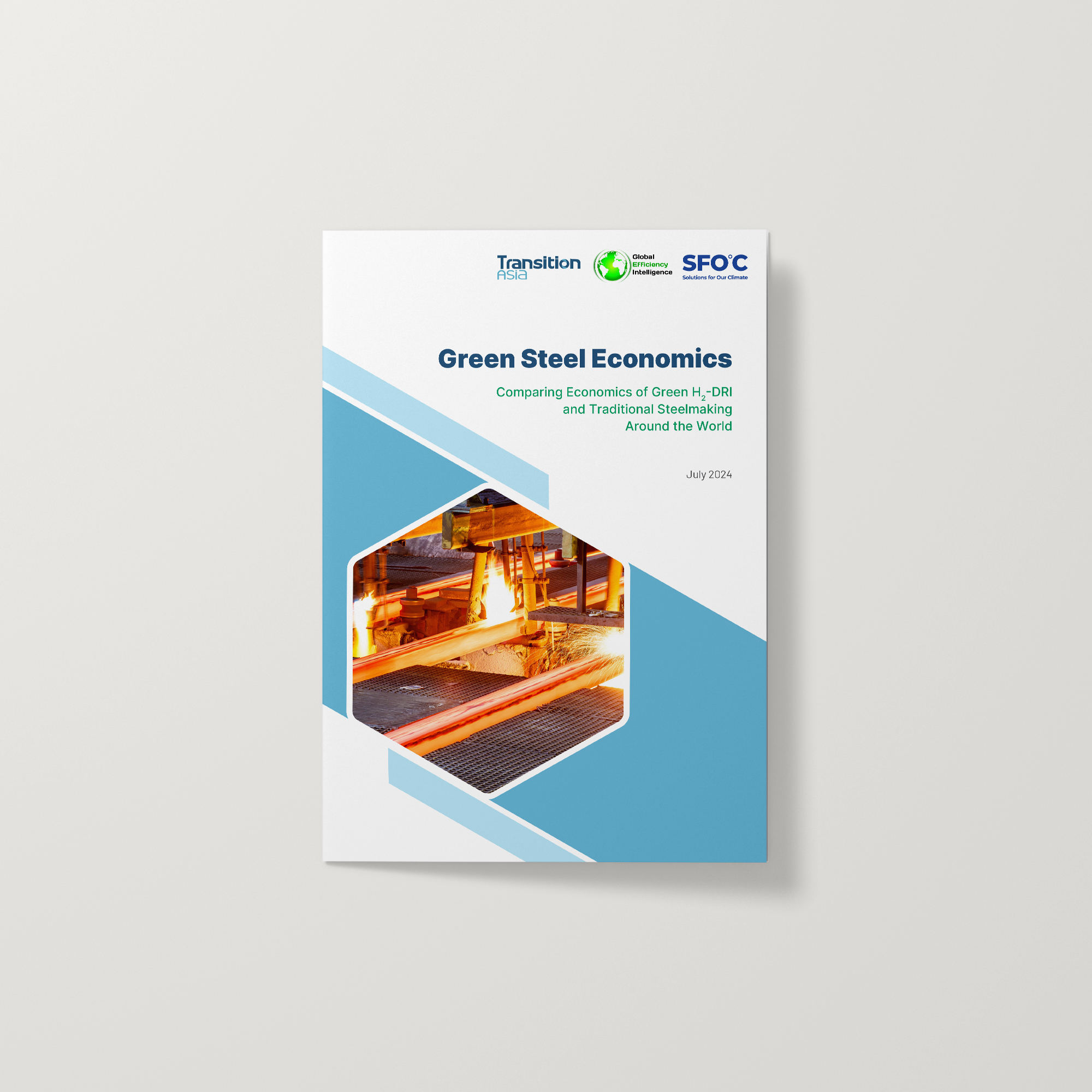Just 10 corporations — including KEPCO and POSCO — drive nearly half of the nation’s greenhouse gas emissions
September 3, 2025 (SEOUL) – Heatwave-related damages in South Korea have reached an estimated $119.6 billion from 2011 to 2023, according to a new report from Solutions for Our Climate (SFOC). The study finds that just 10 companies are responsible for 43.5% of the country’s greenhouse gas (GHG) emissions during the same period, underscoring how a handful of state-backed utilities and industrial giants are driving the country’s climate footprint and its economic losses.
The report’s calculations are based on a methodology adapted from a peer-reviewed study published in Nature, providing scientifically validated estimates of corporate contributions to climate-related losses.
South Korea is a top 10 global emitter, based on cumulative GHG emissions from 1970 to 2022 (EDGAR database). This international ranking underscores the country’s critical role in global climate mitigation, and the report highlights how corporate actions—particularly from major emitters like KEPCO and POSCO—directly shape the nation’s ability to meet its climate goals.

Figure 1. Cumulative GHG emissions by country
The top emitter is steelmaker POSCO, followed by five subsidiaries of state-owned Korea Electric Power Corporation (KEPCO), which collectively rank 2nd through 6th. Other major contributors include Hyundai Steel, Samsung Electronics, Ssangyong C&E, and POSCO International, some of South Korea’s largest chaebols. Together, these companies represent a mix of private and state-backed corporations that dominate South Korea’s corporate emissions. POSCO alone accounts for $28.1 billion in heatwave-related losses, while KEPCO’s five subsidiaries represent $72.9 billion.

Figure 2. Cumulative GHG emissions and loss contributions by South Korea’s top 10 emitters
“Our study provides scientific evidence of how a specific company’s GHG emissions have contributed to climate-related impacts, such as heatwaves,” said Jeongho Jo, co-author of the report. “For the first time, it provides a framework for holding corporations accountable for their emissions, not just at the national level but also at the corporate level. If future analyses expand to include heavy rain, floods, or wildfires, the losses will be even greater. Korean companies and the government must proactively respond to emissions and implement meaningful reduction systems to meet their responsibilities in the climate crisis.”

Figure 3. Future outlook on GHG emissions in Net-zero vs. CurPol pathway (2025-2050)
Moreover, under a Current Policy (CurPol) pathway, cumulative heatwave-related damages from 2025 to 2050 could reach $518.9 billion. By contrast, a Net Zero pathway would limit damages to $204.7 billion—avoiding an estimated $314.2 billion in losses. The implication is clear: net-zero policies are not optional add-ons but an essential cornerstone of South Korea’s climate and economic resilience.
The report also highlights the distinctive responsibility of the power sector. A power producer’s fuel mix—coal, LNG, or renewables—determines the carbon intensity of electricity consumed across the economy, shaping the Scope 2 indirect emissions of virtually every other industry. Because KEPCO and its subsidiaries are state-owned, their accountability is different: emissions are ultimately borne by the public, and the company must act not only as a power supplier but also as a steward of climate-related financial risk.
This concentration of emissions has already sparked legal action. Recently, South Korean farmers sued KEPCO for climate-related damage caused by its emissions. The case represents the first corporate climate lawsuit in South Korea demanding financial redress for harm already suffered and aligns the country with a growing global wave of litigation holding major emitters accountable.
“This analysis goes beyond raising awareness,” said Soyeon Lim, co-author of the report. “It provides a starting point for using loss contribution calculations as a benchmark for policy, litigation, and investment decisions. Companies should now be held accountable not only for their emissions, but also for the damages caused by those emissions.” Lim added that this sends a strong signal for shifting discussions around climate harm compensation, which have so far been stalled due to unclear lines of responsibility.
The findings reinforce the need for governments and major corporations to embed climate accountability into energy transition strategies and ESG performance metrics, ensuring that state-backed emitters are held to a higher standard of responsibility.
ENDS.
Solutions for Our Climate (SFOC) is an independent nonprofit organization that works to accelerate global greenhouse gas emissions reduction and energy transition. SFOC leverages research, litigation, community organizing, and strategic communications to deliver practical climate solutions and build movements for change.
For media inquiries, please reach out to Yi Hyun Kim, Communications Officer, yihyun.kim@forourclimate.org.
Share this insights























































![[Brief] South Korea’s international public finance continues to block a just energy transition](https://content.sfoc.tapahalab.com/images/research/RC5Kime.jpg)






![[Report] Financing a Paris-Aligned Coal Exit in South Korea](https://content.sfoc.tapahalab.com/images/research/ld8wdme.jpg)




![[CREA-SFOC] Unveiling the Truth Behind Blast Furnace Pollution_South Korea](https://content.sfoc.tapahalab.com/images/research/C4Xvdme.jpg)

![[Consultation Brief] No Room for New Gas in South Korea](https://content.sfoc.tapahalab.com/images/research/uDmDeme.jpg)



![[이슈브리프] 한전 적자 부추기는 전력시장 보상제도와 거버넌스](https://content.sfoc.tapahalab.com/images/research/FzvSdme.jpg)


![[ISSUE BRIEF] Fossil Fuels, the Main Culprit behind KEPCO’s Deficit](https://content.sfoc.tapahalab.com/images/research/q5TSdme.jpg)



![[이슈 브리프] 좌초되는 한국형 RE100 제도: 망이용료와 제3자 PPA를 중심으로](https://content.sfoc.tapahalab.com/images/research/etandme.jpg)


![[토론회] 한국형 녹색분류체계(K-Taxonomy), 무엇이 녹색경제활동인가](https://content.sfoc.tapahalab.com/images/research/bn8jdme.jpg)

![[이슈 브리프] 탄소포집, 이용 및 저장기술(CCUS) 현황과 문제점](https://content.sfoc.tapahalab.com/images/research/SWESdme.jpg)

![[이슈 브리프] 탈석탄 투자 가이드라인](https://content.sfoc.tapahalab.com/images/research/tJRidme.jpg)
![[이슈 브리프] 신설 석탄발전소 가치평가 결과와 시사점](https://content.sfoc.tapahalab.com/images/research/nQCGime.jpg)





